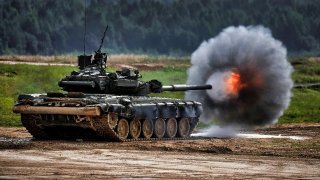What Made North Korea Send Boots on the Ground to Russia?
North Korea, Russia, and China often inhabit the same position in the headspaces of NATO nations as the United Bloc against the Treaty's forces. However, are these powers as closely aligned as is supposed?
While the Democratic People’s Republic of Korea (DPRK) has a long history of aggressive engagements and is a world champion of bellicose rhetoric, its real-world military action under Kim Jong-un’s rule has mainly stayed within the boundaries of its territory and shown some degree of restraint. However, sending up to 12,000 troops, with probably more to come, to help fight Russia’s illegal war of choice against Ukraine is quite another matter.
Why is it that North Korea has gone to these extremes now?
It is purported that a desperate need for humanitarian aid, gas and oil, anti-aircraft missiles, as well as combat experience suffice as explanations. While these are important reasons, one must also look back to North Korea’s long history with Russia and deeper into its psyche to fully understand the justifications for why this step was taken now.
Kim Jong-un’s grandfather and the first leader of North Korea, the Russian-trained Kim Il-sung, had made repeated pleas before getting the green light from Joseph Stalin to conquer the South in June 1950. But the initial fortunes turned, and it was only when China sent some 250,000 ‘voluntary fighters’ that total collapse was averted.
After the armistice in 1953, Kim Il-sung built a socialist hermit kingdom with strong support from Russia and China in the ashes of his initial miscalculation.
Kim Jong-un knows his family history and Kim Il-sung is the role model. Kim Jong-un knows that the country was a Soviet-Russian creation in the first place. There is a great possibility that he also studied how the grandfather thrived when he was able to play out Moscow against Beijing for subsidies and support.
Kim Jong-un is after Russia’s full-scale invasion of Ukraine in 2022 back in a geopolitical sweet spot like where his grandfather once excelled. Thirty years of uneasy dependence on China ended when a sanctioned Russia remembered its close connection to North Korea, seemingly sitting there waiting to be utilized. Presently, Russia joined North Korea as another client of China, from North Korea, it can get things China won’t or could not give.
What exactly made Kim Jong-un send his troops to Russia this fall will probably remain the object of speculation for a long time to come. It surely has to do with the incentives described above, whether they are of a financial or a tech transfer nature, including possibly support to further develop North Korea’s nuclear program.
However, this is not new. The troop deployment therefore probably has to do with something deeper, a heightened sense of existential encirclement in Pyongyang, and a trigger.
Firstly, the sense of encirclement was exacerbated by the creation of the (JAROKUS) trilateral pact between Japan, South Korea, and the U.S., and the increasing collaboration of the latter two countries with NATO which constitutes a link to the European theatre.
Kim Jong-un recently branded this collaboration an ‘Asian NATO’.
Secondly, the trigger was probably when Russia was invaded in Kursk which sped up the ratification of the North Korean-Russian Comprehensive Strategic Partnership.
Ever since Kim Il-sung was rescued by Russia and China in the 1950s the Kim dynasty’s chief adversary has been the USA. Everything is the fault of its ‘hostile policies’ according to North Korea. In its world view, it was the U.S. that stopped North Korea from conquering the whole peninsula, it was the U.S. that supported the South to become the powerhouse it is today, and it was the U.S. that consistently tried to stop the development of its nuclear weapons program.
More recently and perhaps importantly, it was in their view Donald Trump, or the persons around him, that humiliated Kim Jong-un when he traveled to Hanoi in 2019 and thought that a deal was within reach.
Thus, supporting Russia to defend its territory in what North Korea now calls a sacred struggle against the U.S. and the West with boots on the ground is not only returning favors from the 1950s. It is probably also the consequence of a North Korean sense of being together with Russia in an intensified epic struggle against the U.S. and the West. If Russia proper could be invaded, so could North Korea.
Therefore the troop deployment should also be seen as a postcard to the U.S. and Donald Trump. And there are more unsent postcards in store. A seventh North Korean nuclear weapons test, which according to reports is ready to go, remains an ace up the sleeve for any future negotiation.
Thus, for an American president with big bang dealmaking ambitions in Ukraine and possibly also North Korea, the North Korean troop deployment to Russia has made things more complicated. It links the European and Northeast Asian theatres in new ways. Compared to 2018-2019 it will now be a taller order to reverse the tide of mutual recriminations, and the disturbing facts on the ground established by Kim Jong-un through his gamble to join Vladimir Putin’s war of choice.
About the Author:
Jakob Hallgren is the Director of UI, at the Swedish Institute of International Affairs, and also, a Former Ambassador of Sweden to the Republic of Korea from 2018 – 2021. He is a Former Deputy Director of SIPRI, the Swedish International Peace Research Institute.
Image Credit: Creative Commons and/or Shutterstock.

